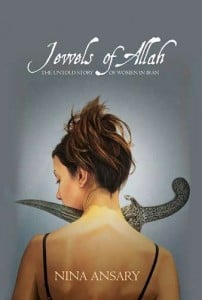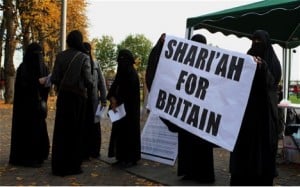Have you ever noticed how minorities—and oppressed people in general—lack a sense of humor? Lately, there have been plenty of jokes about Arabs and Muslims. So why aren’t we laughing?
French Interior Minister Brice Hortefeux recently felt his joke fall flat after this year’s summer congress. One of his traditional supporters, Amin Benalia, asked if he could take a picture with the minister. A woman in the crowd jokingly introduced Benalia to the team as someone different because he “eats pork and drinks beer”. Ah, a meeting of old friends and politicians united under the banner of pork, beer and the finest French jokes. The Minister explained about Benalia:
“He doesn’t fit the prototype [of an Arab Muslim] at all. Not at all. We always need one. When there’s one, that’s all right. It’s when there a lot of them that there are problems.”
This moment of free expression had been launched on the website of Le Monde and raised lots of questions, reactions and criticism. But the merry minister did not apologize. He simply said it was a joke, and most journalists gave it legitimacy by saying the minister was “very laid-back”.
David Gee, the author of Shaikh Down—a very “funny” novel about the Arabs (again)—claimed he “spent six years in the Gulf and never met an intelligent woman”, ignoring the fact that intelligent women had better things to do than meet up with a poor so-called satirist.
In Shaikh Down, Gee writes:
“Nayla was tall, olive-skinned, voluptuous, at twenty-six two years younger than her brother Ibrahim and exactly half her husband’s age, a feminist intellectual in a society that tended to ignore women and mistrusted intellectuals .”
Exclusively focusing his attention on the body of Nayla, the author completely ignores the role that high-profile women play in the Gulf. The “feminist intellectual” is at some point described as if she was either a prostitute or a commodity: by the size and the color of her “voluptuous” Orientalized body.
Here is another sample about Nayla, when the death of her husband is announced:
“Nayla sighed, which the houseboy took for an upper-caste Arabic demonstration of controlled grief. But grief was not what the new widow felt. Her marriage had been arranged between her brother and the Bahzoomis, whose wealth was second only to that of the ruling al-Khazi clan. Nayla had despised her husband in life – his gambling and drinking, his belly-dancing whores, his newspapers that kissed the backside of her uncle the Amir – and she felt only relief at his passing, however brutal it seemed to have been.”
In this paragraph, Gee develops the stereotype of oppressive arranged marriages among Arabs and Muslims. Nayla “despises” her husband. The Orientalist cliché of sensuality and availability always works in association with a harsh criticism of traditional marriage. Marriage is bound to be oppressive among these “shaikhs” and, most importantly, it makes the available resource of women not so available. Gee is not criticizing marriage as a social institution or as a bourgeois civil contract – like many feminists did in Europe. He is criticizing marriage in Arab societies–as if an Arab man was not able to love his wife and as if an Arab woman could only hate her husband while longing to be saved by some romantic white man…
But maybe, it only was a joke, again.
In one sentence, despising both the countries of the Gulf and the people who live in them, Gee proves that he is only recycling his own White middle-class fantasies. His book aims to be a “hilarious ‘blueprint’ for a Revolution that will sweep the tyrant Rulers of Arabia into the dustbin of history!” It is just one more Orientalist novel – a really bad and poorly written one.
Gee and the French minister are not comic; they only are racist. But maybe, I have no sense of humor. That’s the main problem, according to David Gee, Brice Hortefeux and all their funny ruling friends.
Kathleen Hanna gave the best reply you can ever make to these clowns:
“I have to deal with sexism every day so it’s like maybe boys can find that really funny and humorous, I don’t have the luxury to find that humorous. I live it every fucking day. That’s not funny to me, and if I say it’s not funny, it’s not funny. You know what I mean? It’s like there’s no argument there, whether it’s funny or not, if I say I don’t find it funny it means: hey, be cool to me and respect me, your joke is not my joke.”
Editor’s note: This article was updated on September 27, 2009.











